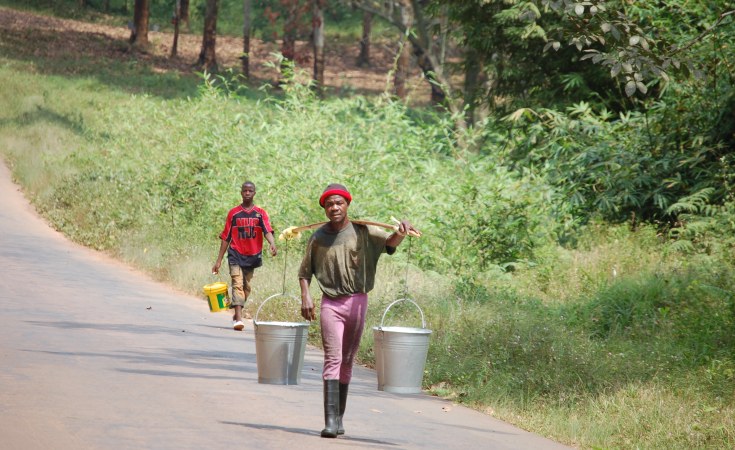Liberian farmers have welcomed the lifting, in May 2024, of a controversial six-month ban on unprocessed rubber exports. The Consortium of Rubber Sector Actors of Liberia (CORSAL), a powerful voice for various stakeholders within the industry, expressed its deep appreciation to President Joseph N. Boakai for this decision and outlined the positive changes it has brought.
CORSAL's chairman, James W. Sayekea, in a statement released on June 23rd, lauded the President for his "farsighted and nationalistic decision", aimed at empowering Liberian participants within the rubber sector. The ban, imposed by former President George M. Weah in November 2023, had caused significant hardship for many Liberians who depend on the rubber trade for their livelihood.
A Booming Market and Better Practices
Sayekea outlined several positive developments that have emerged since the lifting of the ban. According to him, increased competition between unprocessed rubber exporters and concessionaires has sparked a price war, driving up rubber prices for farmers by a significant 10% - even exceeding the global market increase. This translates to a much-needed financial boost for Liberian rubber farmers, many of whom were struggling to make ends meet under the previous administration's policies.
Furthermore, he continued, concessionaires have abandoned a number of unfavorable practices that had previously burdened farmers. The elimination of rigid selling schedules, where farmers were restricted to selling their product at specific times, offers greater flexibility. Additionally, concessionaires are now collecting rubber directly from farms, significantly reducing transportation costs for farmers. This, he says, not only saves them money but also cuts down on post-harvest losses.
CORSAL also highlighted the return of "willing seller, willing buyer" practices, a principle they strongly advocate for. This market-driven approach allows farmers to negotiate the sale of their product directly with buyers, fostering a more transparent and potentially more profitable environment for them.
Regulation, Revenue, and A Processing Dream
The consortium acknowledged its commitment to ensuring a well-regulated trade environment. Measures are being implemented to guarantee that only authorized individuals and entities with valid licenses participate in the unprocessed rubber trade. This ensures the Liberian government receives appropriate taxes (including the 4% General Obligation Levy and RDFI fees) from exports, shoring up public coffers.
Looking towards a more self-sufficient future, CORSAL remains dedicated to constructing and operating Liberia's first commercial rubber processing plant. This ambitious initiative has the potential to transform the Liberian rubber industry. By allowing Liberians to process their rubber into higher-value products like TSR 10 and 20, Liberian actors within the sector would be able to capture a greater share of the profits.
"We envision a future where Liberian millionaires are produced from the rubber sector," declared Sayekea, emphasizing CORSAL's vision of economic empowerment for Liberians. This domestically-owned processing plant would not only boost profits but also create new jobs within the Liberian economy.
Challenges and Road to Recovery
Despite the positive developments, CORSAL acknowledges the lingering impact of the ban. A full recovery for all stakeholders is estimated to take at least 12 months, the statement says. Farmers face challenges including overgrown farms due to inactivity during the ban, stolen materials, and the need for significant investment to re-equip trees for optimal production. Rubber brokers have suffered losses due to oxidized and dehydrated rubber during the ban, leading to financial difficulties and potential loan defaults. Similarly, exporters faced financial strain due to stockpiled rubber and storage fees incurred while the ban was in effect.
CORSAL, however, expressed unwavering confidence in the resilience of Liberian rubber sector actors. Their determination to remain engaged in the trade, coupled with the processing plant initiative, paints a promising picture for the future. The statement concluded with renewed gratitude to President Boakai for his leadership and commitment to fostering an inclusive approach to national economic growth. CORSAL's focus on empowering Liberians through a well-regulated and lucrative rubber sector positions Liberia to compete more effectively on the global market, while creating a brighter economic future for its citizens.


